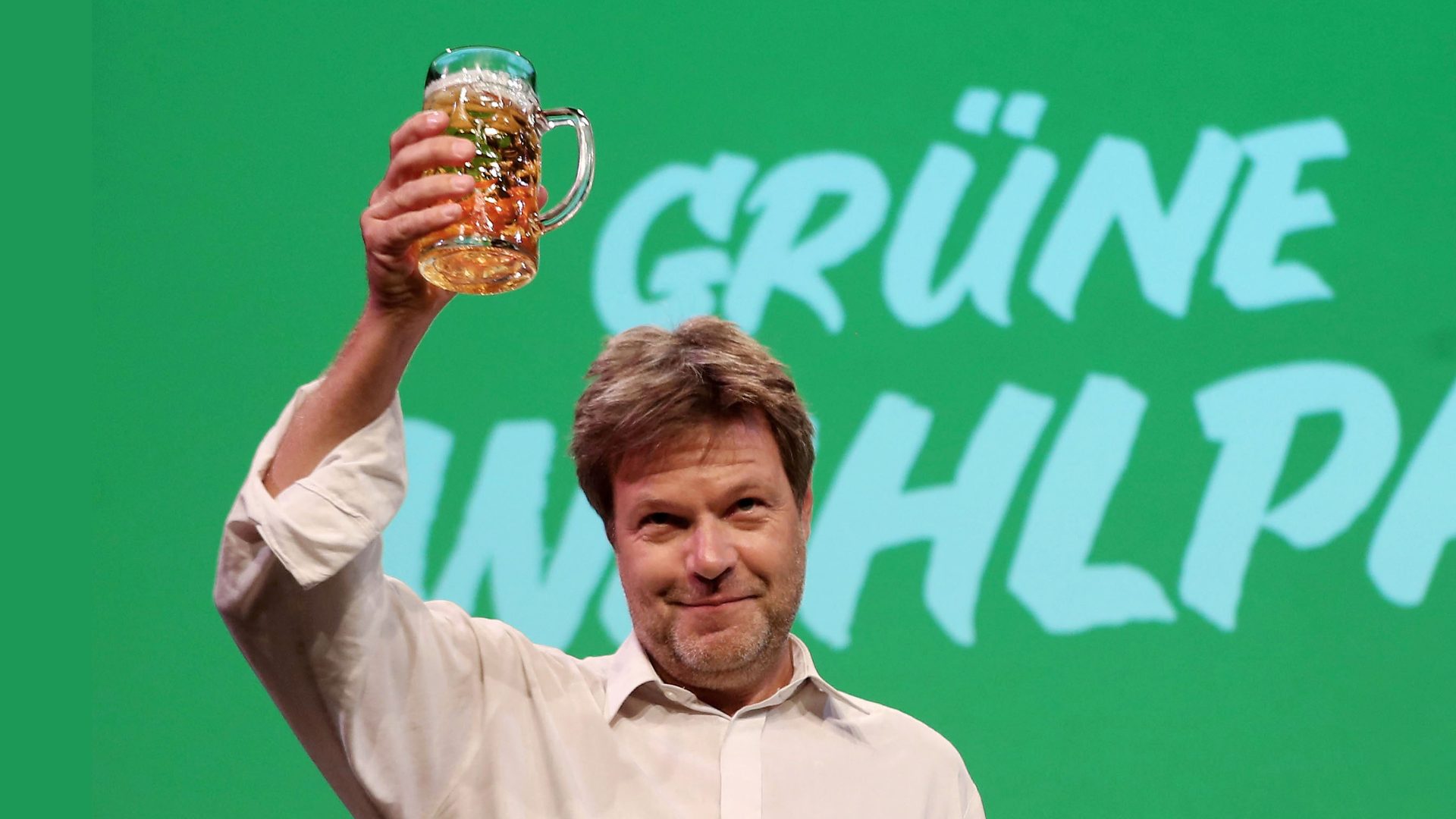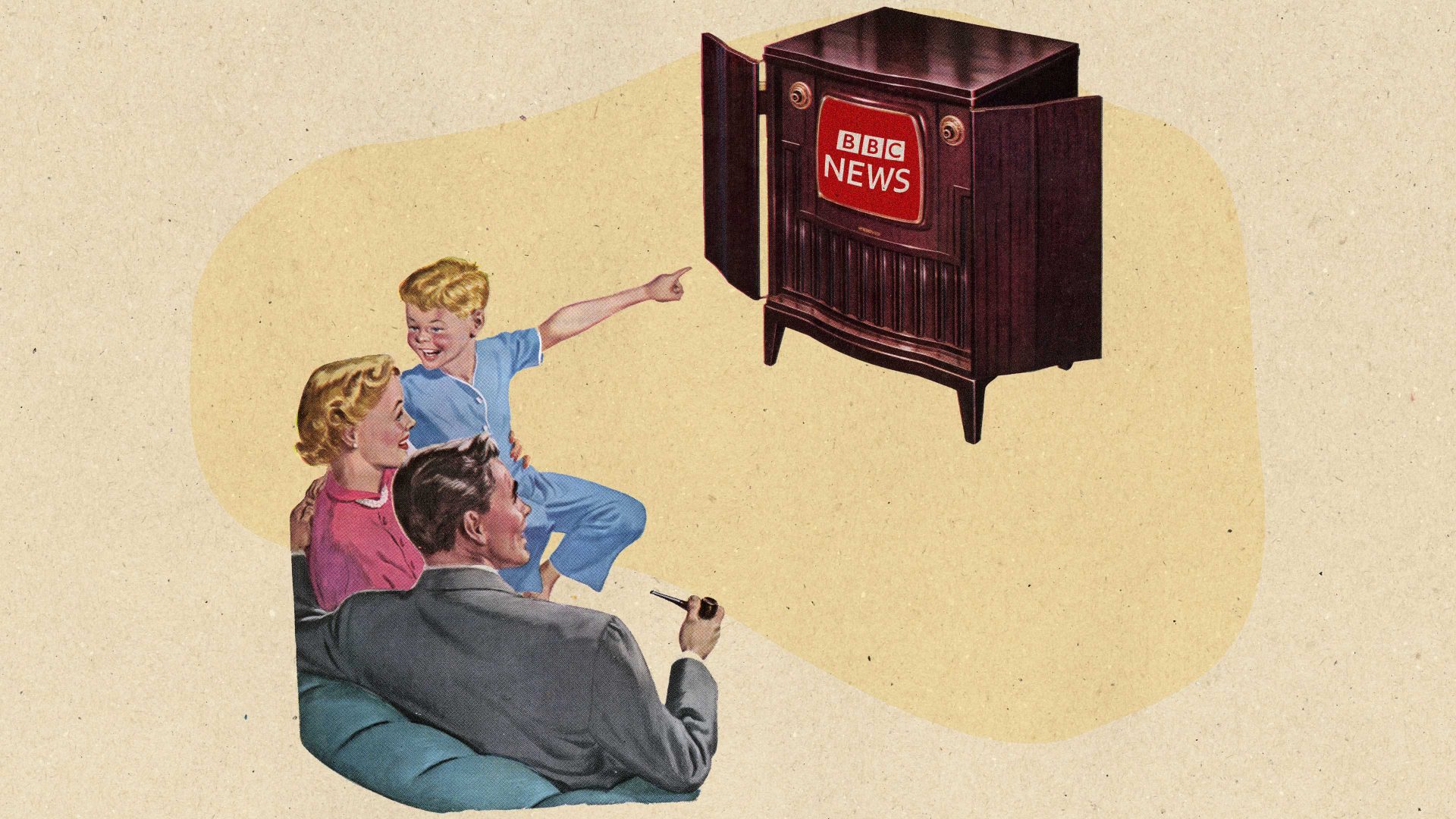At first glance, Robert Habeck, the vice-chancellor of Germany, is the antithesis of what a Green politician should be. He is slick, well dressed, with a carefully maintained three-day stubble and a gift for the soundbite. He occasionally still plays to the gallery, taking off his shoes in the restaurant carriage of a train in order to show an accompanying journalist the holes in his socks, ever so unconvincingly asking that this not be reported. Of course, it was duly written up.
None of this should count for much any more. Indeed, it doesn’t. The more integrated the Greens have become in German politics, the less they are required to behave differently. Apart from the odd activist here and there, the beards and the Birkenstocks have long gone.
What does matter is the transformation in the politics of the once-fringe Green Party. It has been in power before, as the junior partner to Gerhard Schröder’s Social Democrat-led coalition from 1998-2005. This was the government that sent forces into Kosovo, the first time Germany had engaged in active military operations since the second world war. The foreign minister at the time, Joschka Fischer, was a Green and he pleaded with parliament to approve the intervention. He invoked the memory of Auschwitz and urged MPs not to walk by on the other side. Fischer was a one-man dynamo, who enjoyed playing the outsider. The trainers he wore to work are currently on display in a museum.
Now the Greens are everywhere. They are members of the government in 11 of Germany’s 16 states and they lead the Baden-Württemberg authority, the wealthy region in the south-west synonymous with the car industry. During the September 2021 general election campaign, it even looked as if they might become the largest party. A few months earlier, Habeck had made headlines by stepping aside to let the party’s younger female co-leader, Annalena Baerbock, become the party’s first candidate for chancellor. Some saw the decision as justified, others as tokenism. The Greens ended up a disappointing third after a gaffe-laden campaign by Baerbock. That was to prove a temporary setback.
The traffic light coalition (red of the SPD, Green, and yellow of the smaller liberal FDP) that was formed under Olaf Scholz is now dominated by two figures – Baerbock and Habeck. For someone with so little experience, Baerbock has settled impressively into the role of foreign minister. In her first three months, she has had to contend with Vladimir Putin’s invasion of Ukraine and she gave as good as she got in her first meeting with her Russian counterpart, Sergei Lavrov, who enjoys humiliating his visitors.
The biggest star of the show so far, however, is Habeck. Having emerged as the dominant figure after the election (his relationship with Baerbock is a complicated mix of friendship, rivalry and put-downs), he was the clear choice for vice-chancellor. Alongside that, he chose for himself not the world of diplomacy but the less glamorous job of correcting economic imbalances. He assembled a new “super ministry” for climate, energy and the economy, assuming that he would spend most of his time on environmental reform, digitisation and modernisation.
Ukraine changed everything for him, too. Over the past six months, he has had to go cap in hand to the human-rights-abusing princes of Saudi Arabia, Qatar and the UAE, begging them for access to more oil and gas. He has searched far and wide for sources of energy to replace Germany’s woefully historical reliance on the Kremlin’s gas supply.
Habeck feels vindicated by his overall approach to Ukraine, as well he might. In May 2021, after a visit to Kyiv, he told a radio station that it was “hard to deny” Ukraine’s right to acquire “weapons for self-defence”. His statement caused a furore.
Most of that is down to Scholz and the SPD. The Greens have for some time advocated a more robust approach to Russia and China, but even so, at the time, Habeck’s remarks were considered beyond the pale. He was forced to “clarify” them.
Germany is waking up to the notion of hard power in defence of human rights and the rule of law, but it is not coming easily. Habeck has taken upon himself the role of delivering bad news to the populace. The world has become a darker place, he tells them. This autumn and winter will be tough. People will have to tighten their belts. They will have to swim in colder pools, shower for less time, turn off the lights unless necessary. But those in most need will receive protection.
All the assumptions of liberal, green Germany are up for grabs. The government has agreed to extend carbon-emitting coal stations in the Lausitz region to the east of the country and in the Ruhr to the west. It is even contemplating lengthening the lives of the three remaining nuclear power stations.
The very word nuclear sends the Greens, and many Germans of all parties, into paroxysms of fury and despair. The party was formed in 1980, a year after the accident at Three Mile Island in the US. Six years later came Chernobyl. Wherever nuclear plants were built, huge and often violent protests ensued. Yet a country as energy-poor as Germany needed to look everywhere. Renewables were the source of choice, and a major investment in solar and wind power was launched.
In 2006, a year into office, Angela Merkel pledged her support for nuclear energy, declaring: “I will always consider it absurd to shut down technologically safe nuclear power plants that don’t emit CO2.” Five years later, the disaster at Fukushima in Japan led her to panic, and she announced that she would close down all remaining plants by 2022. This decision is at the heart of so many of its present woes – it made Germany the Kremlin’s energy hostage.
And this is the ultimate irony – it is now the Greens who are contemplating an extension of Germany’s nuclear power programme. In spite of this, and his gloom-mongering, polls consistently show Habeck to be the most popular politician in Germany. It is perhaps because he has been straight with voters about the tough times ahead, and the need for fundamental change, that he is so admired.
But will it last?
The Greens have always been an amalgam of the “realos” and the “fundis”. For some time, the realists have been in charge. Habeck has so far managed the essential requirement of being principled but also pragmatic. In 2019, the American magazine Foreign Policy called him “Germany’s answer to Macron”, a description that may be a bit of a stretch (and would now not be taken as a compliment).
In his 2010 book Patriotism: A Left-Wing Case, Habeck argued that “the flag and national anthem don’t belong to right wing populists”, and that the left should also offer “a sense of unity and Heimat (homeland)”. He has talked elsewhere of redefining politics between open and closed political systems: “We now try to become the new playmakers. Green parties can also address central questions that don’t fit into the traditional left-right spectrum. How do we establish a consensus in a diverse society?”
The climate emergency, he added, would not be solved by judgmentalism or excessive interference in people’s lives. “There can be no politics that doesn’t ban things. We have a highway code, a code of civil law: the world is full of bans that exist in order to guarantee our freedom. If you set standards at a broader political level, then that’s a good thing. If you tell people they have a personal calorie budget for animal proteins, then that’s a bad idea.”
According to Mariam Lau, columnist at the weekly Die Zeit, Habeck has a political curiosity that extends beyond the tribe. The Greens have, particularly at regional level, worked well with the centre-right Christian Democrats. Lau points out that the entrance hall of Habeck’s ministry is dominated by a portrait of Ludwig Erhard, the Christian Democrat chancellor from 1963 to 1966 but better known as the architect of Germany’s economic miracle of the 1950s. Erhard’s version of conservatism involved a major dose of state intervention, something that is now back in favour. Lau tells me that when she recently asked Habeck which historical figure he would like to have had dinner with, he answered, Helmut Kohl. “I really would have liked to know how he dealt with one crisis after another.”
The son of a pharmacist, Habeck had a picture-book gemütlich upbringing in the northernmost state of Schleswig-Holstein. According to an unauthorised biography published last year, he was not shy in coming forward at school. The author Susanne Gaschke describes it as his “assertiveness gene”.
Like many German politicians, and unlike many in the US or UK, the Danish-speaking Habeck is not embarrassed by an academic past. He has a thesis on literary aesthetics and has published a book on the enlightenment-era poet Casimir Ulrich Boehlendorff. He continued to write novels, sometimes with his wife, Andrea Paluch, until 2009. “During the so-called ‘rush hour’ of life, which begins for Paluch/Habeck in their mid-20s, they study abroad, write two master’s and two doctoral theses; they marry, feed, change diapers and play with their four small children, and in 2001 they publish their first novel together; and buy their first house,” Gaschke writes.
She then quotes Paluch, perhaps implausibly, as saying that her husband “needed a bigger battlefield than our desk”, and so entered politics at the relatively late age of 32. He ascended the ladder quickly, becoming Schleswig-Holstein’s energy and environment minister from 2012 to 2018, in coalitions with both centre-right and centre-left, before making his name at the federal level.
For the moment, his star is very much in the ascendant. When the Frankfurter Allgemeine newspaper asked corporate leaders which politician they thought was performing well, Habeck received a 92% rating and Baerbock 91%. Christian Lindner, the finance minister and supposedly business-friendly leader of the FDP, received a mere 43%. As for Scholz, his numbers are tanking.
According to the tracker conducted by ZDF, one of the two main television stations, the Greens are now outperforming the Social Democrats. As for Habeck, he remains on top, but his numbers are falling, just a little. And that is before the onset of autumn, winter hardship and possible energy cuts. The polls show continued but slowly diminishing support for a hard line on Ukraine. Habeck’s toughlove message is about to face a much sterner test.




